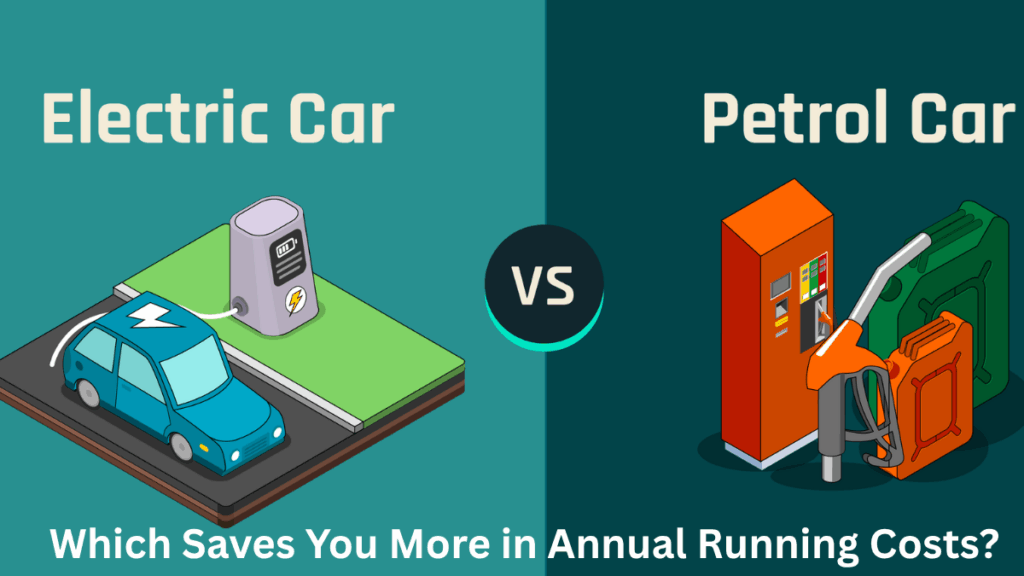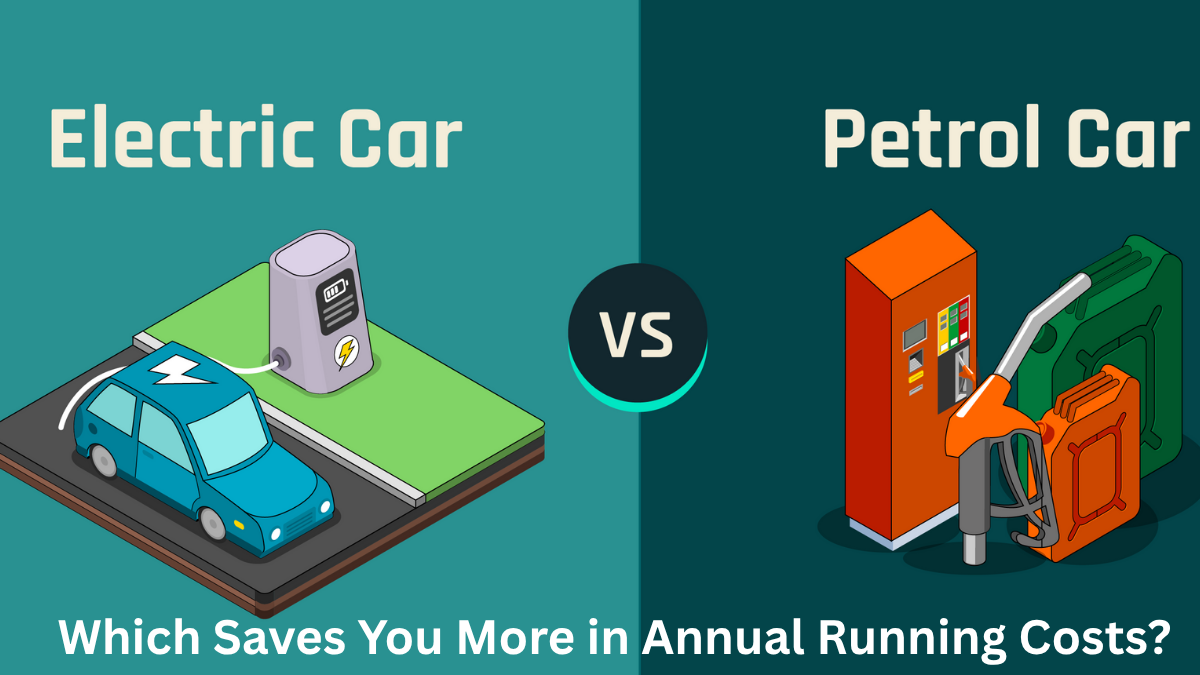As fuel prices continue to climb and electric vehicles (EVs) go mainstream, one question stands out in 2025: Which saves you more – an EV or a petrol-powered car?
This article offers a practical breakdown of Petrol vs EV Running Cost 2025, helping you understand what suits your driving habits and budget.

Key Factors That Impact Running Costs
What determines your yearly spend?
-
Fuel or Charging Rates
-
Distance Covered Annually
-
Routine Maintenance Costs
-
Government Incentives or Rebates
-
Insurance Premiums
Quick Cost Comparison: Petrol vs EV (2025)
| Aspect | Petrol Car | Electric Vehicle (EV) |
|---|---|---|
| Fuel/Charging Price | ₹110/litre (avg) | ₹7/unit (avg electricity cost) |
| Mileage / Efficiency | 15 km/litre | 6 km/kWh |
| Annual Distance Driven | 15,000 km | 15,000 km |
| Total Fuel/Charging Cost | ₹1,10,000 | ₹17,500 |
| Annual Maintenance Cost | ₹12,000–₹15,000 | ₹6,000–₹8,000 |
| Road Tax/Subsidies | Higher taxes; no subsidy | Lower tax + incentives (up to ₹50K) |
Annual Savings: EVs save ₹80,000–₹1,00,000 compared to petrol vehicles.
Maintenance & Repair: Another Hidden Saving
Why EVs win on servicing
EVs have simpler mechanics. With fewer moving parts, they generally require less upkeep.
EV Maintenance Benefits:
-
No engine oil changes
-
Fewer brake pad replacements due to regenerative braking
-
Longer intervals between services
Petrol Cars Need:
-
Engine oil and filter changes
-
Frequent mechanical servicing
-
Higher wear-and-tear risks with age
Fuel vs Charging Cost in the Long Run
Cumulative cost over 5 years
| Vehicle Type | Fuel/Charging (5 yrs) | Maintenance (5 yrs) | Total Running Cost |
|---|---|---|---|
| Petrol | ₹5,50,000 | ₹70,000 | ₹6,20,000 |
| EV | ₹87,500 | ₹35,000 | ₹1,22,500 |
You could save around ₹5 lakh in 5 years—a compelling case for EVs in terms of annual savings and long-term ownership value.
Other Considerations in 2025
-
Charging Infrastructure is expanding quickly in India
-
Battery Life now extends to 8 years or 160,000 km with warranties
-
Resale Value of EVs is improving, with top models retaining 60–70% of value after 3 years
When Should You Choose an EV Over Petrol in 2025?
Consider an EV if:
-
You drive more than 10,000–12,000 km annually
-
You want consistent annual savings
-
You have home or office charging access
-
You’re eligible for subsidies or tax relief
FAQs
Q1. Are electric vehicles cheaper to run than petrol cars in 2025?
Yes. The Petrol vs EV Running Cost 2025 comparison clearly shows that EVs are cheaper by up to ₹1 lakh per year in running and maintenance costs.
Q2. What is the average cost per km for EVs vs petrol vehicles?
-
EVs: ₹1.2 to ₹1.5/km
-
Petrol: ₹7.3 to ₹8/km
The fuel vs charging cost gap is quite wide, heavily favoring EVs.
Q3. What about long trips—are EVs still economical?
Yes, with fast-charging infrastructure expanding along highways, long-distance travel in EVs is becoming both cost-effective and practical.
Q4. Do government incentives really help with EV cost savings?
Definitely. Incentives under FAME-II and state-specific subsidies can reduce the upfront cost and improve the total annual savings on an EV.
Final Verdict:
In 2025, electric vehicles clearly lead in affordability when it comes to everyday use. With lower fuel vs charging cost, minimal maintenance, and added incentives, EVs offer substantial annual savings over petrol cars.
Click here to learn more
